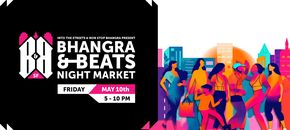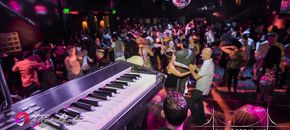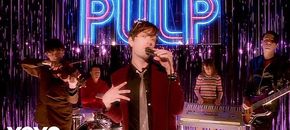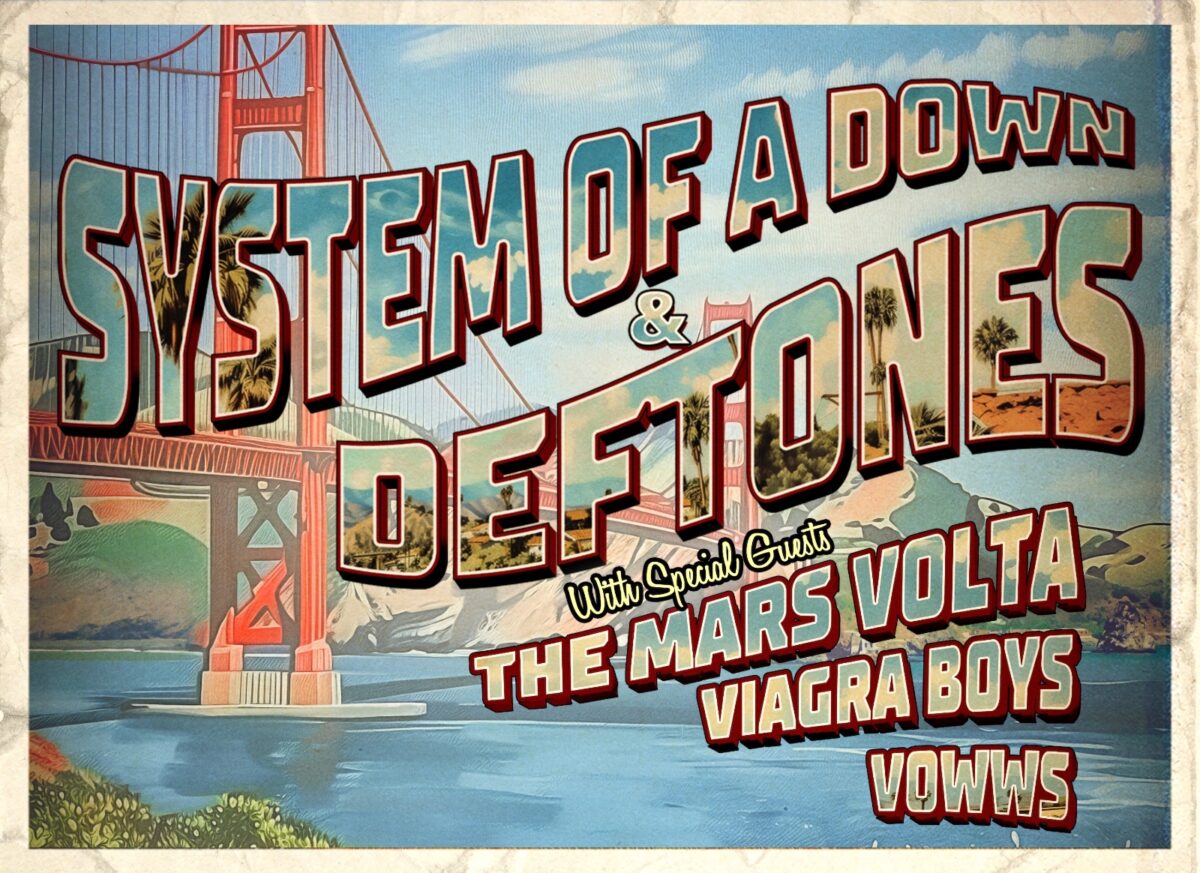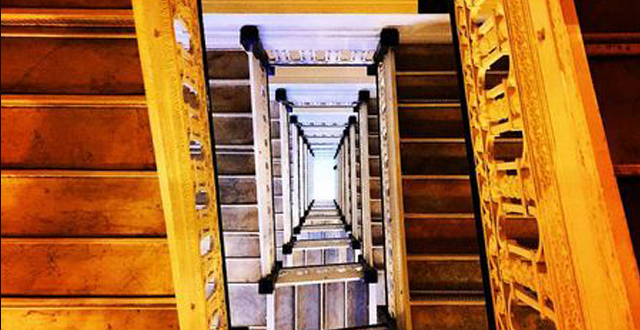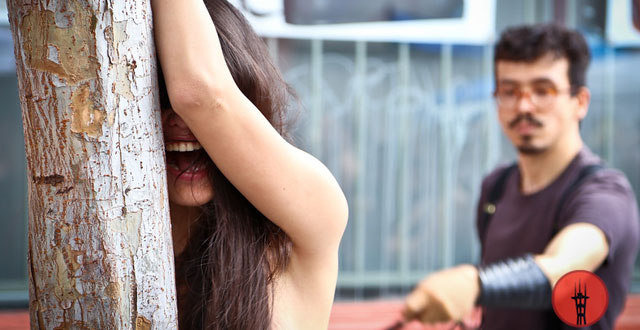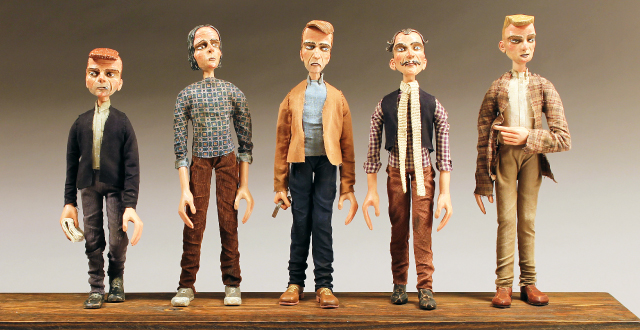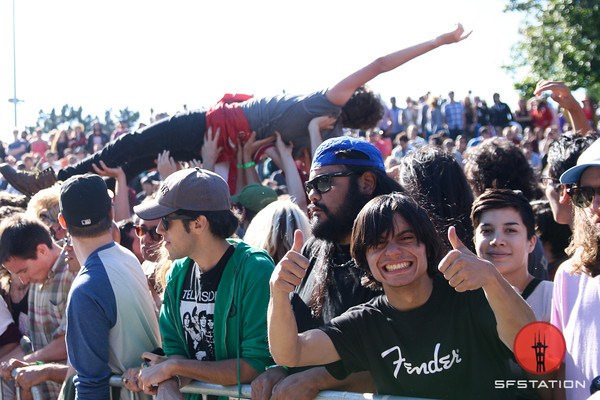Q&A: Caspa & Rusko Make a Jubilant Return to SF with New Dubstep Material
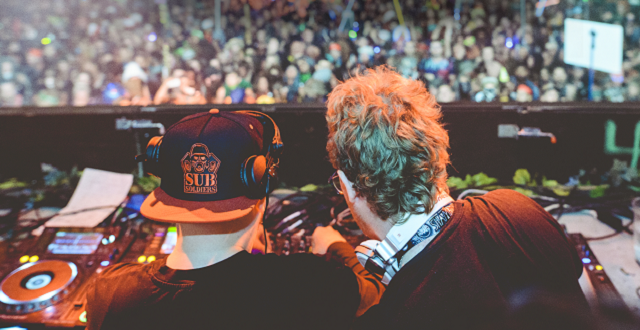
After a multi-year hiatus apart, two of the most influential dubstep producers in the electronic music industry, Chris Mercer (Rusko) and Gary McCann (Caspa), have reunited as a formal duo to make transcendent tracks once again. Their live show schedule this year has been purely organic, but fortunately for SF fans, they are playing at Ruby Skye on Thursday, September 1st in a city they consider monumental to their development.
The arrival of dubstep in the UK and United States has been a natural evolution from jungle and drum n bass, with Caspa and Rusko arguably at the forefront of the popular music movement. The sound has since fragmented into other varieties of electronic music that make the EDM scene the craziness that is is today.
Caspa and Rusko had originally, and informally, joined forces many years ago through a mutual friend, but eventually parted ways to focus on their own careers in different countries. Now that both of them have their home base in the UK again, the collaborative dream team is back at it. Caspa and Rusko have spent the past few months back in the studio working on new sounds, including the release of EP1 and their latest single, “Cheese.”
To preview their upcoming show, we spoke to both Rusko and Caspa about the history of dubstep as a genre, details of their friendship, and what is so special to them about playing in San Francisco.
Who was your biggest influence pushing you to pursue music professionally?
Caspa: For me in general, living in a house with my dad, my older brother, and younger brother—they are all record collectors. My older brother especially was my biggest influence because growing up, he was a scratch DJ. He was always DJing around town. He was listening to a lot of Mo’ Wax, he’s massively into jazz and hip hop. I remember going into his room and seeing Wu-Tang and Mob Deep albums, and he would rip it from vinyl and putting in on cassette tape to bring it to school.
Rusko: I guess my mom. My mom used to play in bands growing up. So there were always guitars and instruments lying around the house. She bought me a four-track tape recorder growing up. She was my biggest supporter and biggest influence really…having all those instruments around and people coming over and playing music. Pretty much every Christmas I got some type of recording equipment so I could record tracks right away. That turned into what I do now.
Caspa: Secondly for me, being in school in the UK, dance music was just in our blood. I remember being in school and all the kids listening to jungle, drum n bass, and hardcore. We have pirate radio stations, which are illegal stations in the UK set up in tower blocks. We could pick up dance music all day every day. Outside of the house, I was at school and listening to dance music. Being from London and listening to dance music was an absolute standard. It was just normal. It was in our blood without you knowing it.
Rusko: Same. Co-signed!
For those that aren’t familiar, what is the history of dubstep?
Rusko: It is sort of an evolution of UK bass music. What was jungle turned into drum and bass in the nineties, which spawned in garage and grime. The next thing in the timeline was dubstep in the evolution of UK bass. It came from everything that went before. There wouldn’t have been garage without the drum and bass and the the jungle before it. Dubstep is the same as that. It was the next thing on the timeline. Essentially it is a melting pot of all the genres that came before it with the forefront and feature really being the bass. It’s all about the bass!
Caspa: Yeah, 100%. Being in the UK, especially where Chris grew up around Leeds and London, there’s a big Caribbean and Jamaican culture. Having sound system music like reggae and sound clash music, and the whole dubplate culture, it was here. So growing up, that was embedded in dance music and jungle. That was the basic, entry level. You had to have a good sound system and dubplate. That just carried through and spawned into all different genres as it progressed like Chris said, the UK bass evolution. If you ask any dubstep producer, I guarantee that they listened to drum n bass, and they listened to jungle, and they listened hardcore, and they were involved in garage. All of it was just a natural progression. We all take those influences and push it through our own filters to make it sound how we want it to.
How has the genre evolved in recent years?
Caspa: I think a lot of stuff has popped up, especially because of the internet. There’s quick genres that people said were going to be big. There was drumstep, which was an offshoot of dubstep. Sample niche baseline house has always been around but goes up and down in popularity. There hasn’t been a wave or worldwide virus that dubstep did. For me, it changed the whole dance music. There hasn’t been a genre like that in a long time. There hasn’t been one like that recently. There’s new sounds and new scenes, but not like dubstep.
Rusko: Dubstep shortened on the intro. It’s true. House tunes and drum n bass tunes used to have minute and a half long intros before the drop. Now it’s all 30-second intros. That’s one example of how dubstep has affected everything else.
Caspa: Yeah, totally. The production level, the way the bass is made and tuned, a lot has spawned off the back of what we’ve done. [Dubstep] went through a period where people said it’s kind of gone as far as it can go…it’s very noisy and one dimensional. That’s only if you’re listening to a particular style and sound. That kind of sound came out of the States, when the whole Skrillex thing popped up and what not and people said dubstep is too aggressive. It’s not. If you listen to the stuff people make in the UK, it’s a completely different vibe. I think now, especially what we’re doing and pushing, we’re playing dubstep to people and they’re like ‘oh this is dubstep? I like this. This is cool.’ This sound comes from the UK. Playing our sounds to a new audience is great, we’re getting back into it again.
Rusko: It’s unusual when we play festivals like EDC, when we play in the middle of the other artists that sound totally different. A lot of the crowd is sometimes taken aback. When we play the original sound and all the new tracks we’ve been playing are all in the same vein that people know and love us for. Inevitably when we get together, especially after such a long absence, we just go back to how we were before…in the studio and on the stage. Stuff has evolved so much over the seven years we didn’t work together and did our own thing. It’s really awesome to be able to stand out on a bill of such big artists and such popular bass music and “dubstep” artists. It’s really nice to stand out and be different, but actually playing the original true sound.
When did you two first become friends?
Caspa: MSN messenger [laughs] when that was walking around. There was a mutual artist, Luke Envoy, who was like ‘yeah man, you should check out Chris and Chris you should check out Gary’s stuff.’ Chris sent me a bunch of tunes. I was running a label at the time and was like, ‘yo man, do you fancy me putting some of these tunes out?’ He said ‘yeah, whatever, let’s do it.’ He moved out to London. We started working together. Next minute, people asked if we wanted to play together. We started playing shows together. Then we got the opportunity to do Fabric kind of out of the blue. That’s when it really went crazy for us. Would you agree, man?
Rusko: Absolutely! Yeah, yeah, yeah. It literally just started with that. I had a bunch of dub tunes. I made dub reggae tunes with electronic synths and stuff like that. They were on MySpace and that’s it. We got put together on MSN messenger through a mutual friend. Caspa sent out my tracks on MySpace. We just got chatting and I came down for a visit to London to make a track which ended up being “Custard Chucker,” which we released. That was our first collaboration. I came back up to Leeds after that. Literally packed my bags and moved down to London. We released a single. I did my first couple of DJ gigs. We kept being in the same place at the same time, being from totally different ends of the country. Me coming from dub reggae background, Gary coming from the garage and grime scene. It was a nice, unusual meeting of heads.
Caspa: It’s the same now. Two different styles, two different personalities and sounds. You can hear it in the tunes. You can hear Chris’ crazy melody, you can hear some of my darkness. It’s a real nice merge of sounds.
Rusko: Even when we play on stage, when we play back-to-back, three tunes each, on and off. Even then you can tell our different sides and personalities in the tunes that we select from the way we would be put a set together individually. It has a flow, up and down and all around the place. It makes for a more interesting show. We’re like a romantic couple. Opposites attract, as they say. Same principle.
How did you decide to make your comeback and create your collaborative record, Cheese?
Rusko: Last year, I moved back to the UK after six years living in Los Angeles. I moved back to the UK and most of those six years I was touring around, Caspa was touring around, we only got to see each other a handful of times. We both had a bunch of time off the road, time off touring, and we thought, let’s hang out for a couple of days and try to make a track for fun. Let’s just see if we can do it. We were like a couple of old mates, had a catch-up session, and ended up actually making two tracks. We came back the next week and did the same. And then another studio session. We built up a whole bunch of tracks and decided we need to get out and play them. We did the debut in LA. We’ve been doing some festival shows this year round and about. It’s been totally organic.
Caspa: Definitely man. You have to take it seriously, and we do, but we’re not trying to take it serious to the point of overthinking it too much. We’re not trying to be, I don’t know, for instance, when everyone does shows over the summer, they put together a flyer of every show they’re doing for the next three months. We’re just like, we’ll announce it when it comes up. We’ll put music out at our own pace. We’re trying to take the bullshit out of it and have fun and go back to why we do it. It’s not just another gig or paycheck, or about trying to get a tour booked. All that stuff is great but let’s just go back to what it’s about—it’s the music.
Rusko: We’re trying to keep the music and touring steady and open-ended. We released an EP last week titled One. We have another EP coming up next month titled 2 and so forth. We’re trying to keep it fun and that’s the name of the game rather than status or money.
What do you enjoy most about playing in San Francisco?
Caspa: Actually, it was in SF that we had our first-ever show together and only U.S. show together up until last year, when we did the Exchange LA show. We played a place down at the pier. It was me and Chris, Matty G, Dugong JR, DJ G, and all the original SF crew. For me, San Francisco, back then, even more so than LA, was the catalyst for dubstep in the States. It’s got the right community. It has been such a long time since we’ve done something like this.
Rusko: It’s crazy that it will have an extra edge of meaning. We’ve both been there so many times since individually, it’s always one of my favorite, favorite stops. It has such a history. It has such a good strong dubstep history, it was on the first tour we did around the U.S., and it was definitely the biggest, busiest show on the run. San Francisco and New York were the biggest shows in the early tours. It will be a really fun show…we can play all songs, not just the peak, 10 out of 10 EDC main stage bangers for hours. We can play the dubby stuff, the reggae stuff, and all the different variations.
Caspa: Another thing important to remember, apart from Rusko moving to the states in LA and being at the forefront before everyone else…out of San Francisco, was where all the original dubstep producers came from. Matty G, from Santa Cruz, he was the only guy from the states playing in Europe and UK. San Francisco has a lot of history of being a dubstep community. It will be nice to go back to play there. The city is very open-minded and up for good music.
